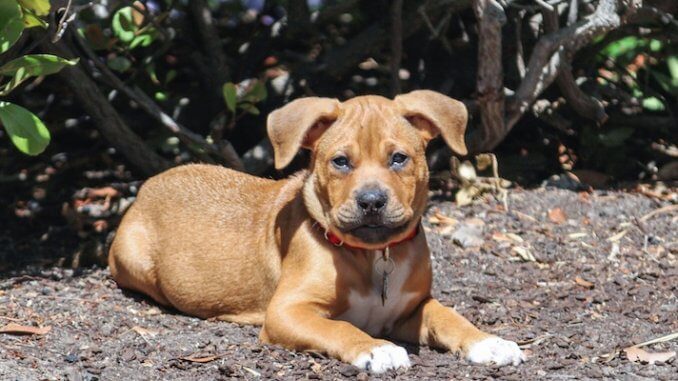
Welcome to the world of the Pitbull Boxer Mix – a delightful blend of two beloved breeds that brings together the best of both worlds. If you’re drawn to the charm, loyalty, and energy of both Pitbulls and Boxers, then you’re in for a treat. Personally, I’ve always been captivated by the unique qualities these two breeds possess, and discovering the Pitbull Boxer Mix was like finding a hidden gem. In this article, we’ll delve into the fascinating origins, unique characteristics, and practical considerations of owning a Pitbull Boxer Mix.
Whether you’re a seasoned dog enthusiast or considering adding a furry friend to your family for the first time, join me as we explore the dynamic personality and undeniable allure of this wonderful hybrid breed.
Origins and History

Alternatively known as a Bullboxer, this unique breed has the spirited nature of the American Pit Bull Terrier and the playful demeanor of a Boxer. When these breeds are combined, and given the right early training and socialization, a loyal, playful, and energetic family companion emerges. Does that sound like a good fit for your household?
Before you get too excited, it’s important to ensure that owning a Bullboxer is legal in your area, as breed restrictions can apply. Intrigued? I’ll guide you through the joys and challenges of daily life with a Pit Bull Boxer Mix.
Overview of the Parent Breeds: Pitbull and Boxer
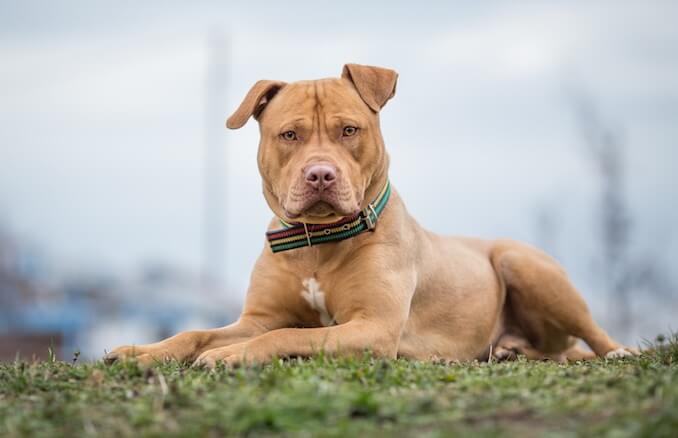
The Pitbull, known for its muscular build and affectionate nature, traces its lineage back to 19th-century England. Originally bred for bull-baiting and later as farm dogs, Pitbulls earned a reputation for their strength, agility, and loyalty.

In contrast, the Boxer originated in Germany in the late 19th century, bred from a mix of bulldog and mastiff-type breeds. Boxers are renowned for their playful personality, protective instincts, and distinctive square-shaped muzzle. The Boxer made its American Kennel Club debut in 1904, but it wasn’t until the 1950s that their popularity soared.
History of the Pitbull Boxer Mix Breed
While the exact origins of the Pitbull Boxer Mix are unclear, it is believed that intentional crossbreeding between Pitbulls and Boxers began in the late 20th century. Breeders sought to combine the desirable traits of both parent breeds, aiming to create a companion dog that excelled in various roles, from family pet to working dog. Over time, the Pitbull Boxer Mix has gained recognition for its versatility, intelligence, and unwavering loyalty, making it a beloved choice for dog owners worldwide.
As a hybrid dog, it’s intriguing to see which traits PitBoxers inherit more strongly—will you see that iconic Pitbull smile, or will you be charmed by the Boxer’s playful ‘paw’ gesture, a nod to their name’s origin?
Although crossbreeds like the Bullboxer aren’t registered with major Kennel Clubs, this mix has been recognized by several registries, including the International Designer Canine Registry, the American Canine Hybrid Club, and the Designer Breed Registry.
TABLE OF CONTENTS
- Origins and History
- Pitbull Boxer Mix Quick Summary
- Breed Characteristics of A Pitbull Boxer
- Common Health Issues
- Tips for Maintaining Good Health and Preventing Common Issues
- Training and Socialization
- The Cost of Living With A Pitbull Boxer
- So, Should I Get A Pitbull Boxer Mix?
- FAQs on the Pitbull Boxer
- Final Woof: The Pitbull Boxer Charm
Pitbull Boxer Mix Quick Summary
Breed Characteristics of A Pitbull Boxer
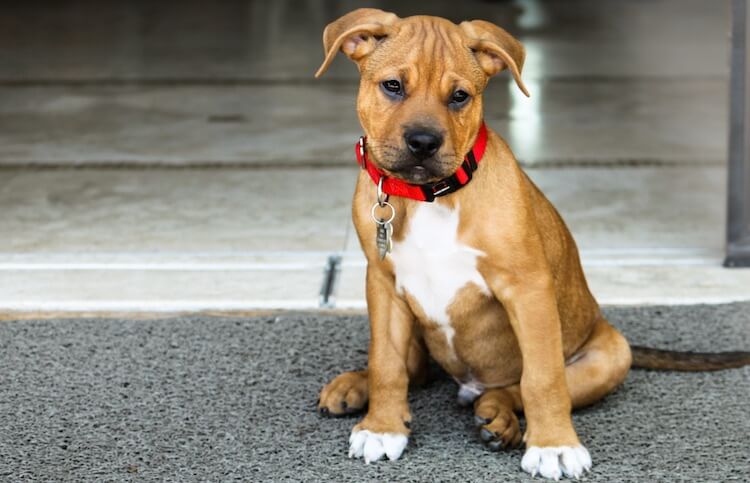
When you look at a Pit Bull Boxer, you’re essentially seeing a blend of two robust breeds, each bringing its own unique set of characteristics to the table. Let’s delve into what makes the physical makeup of these dogs so fascinating.
Coat
Both parent breeds of this mix, the Pit Bull and the Boxer, sport short, smooth coats. This almost guarantees that your Pit Bull Boxer Mix will inherit the same type of coat. The great advantage here is the low maintenance. Brushing the coat two to three times a week is more than enough to keep it shiny and healthy.
Color Variations
The color palette of the Pit Bull Boxer Mix is quite broad, including black, red, white, grey, brindle, blue, fawn, brown, and tan. However, you’ll find that fawn and brindle are more common, echoing the typical colors of the brindle Pit Bull. Each puppy is a unique blend, making every one of them a delightful surprise in terms of appearance.
Facial Structure
One noticeable feature where the Pit Bull Boxer Mix often differs from the Boxer is in the snout. Thanks to the Pit Bull’s elongated muzzle, this mix tends to have a longer snout. This is a health boon as it steers them clear of the typical brachycephalic issues faced by purebred Boxers, who have much shorter muzzles.
Another notable feature is their strong, square-shaped head, reminiscent of both the Pitbull and Boxer breeds.
Size and Build
The size of a Pit Bull Boxer Mix can vary quite significantly, with some as petite as 17 inches in height to others towering up to 25 inches. They can weigh anywhere between 30 and 80 pounds. The size and build of their Pit Bull and Boxer parents are often good indicators of what to expect, so it’s a bit of a genetic lottery. From my experience, these dogs carry the heft and muscle of their lineage, standing as proud examples of their robust heritage.
Temperament and Personality
When it comes to temperament, the Pitbull Boxer Mix is known for its loyalty, affection, and playful nature. These dogs are often described as being highly social and outgoing, forming strong bonds with their families. They thrive on human interaction and are often eager to please, making them excellent companions for households with children or other pets. However, their protective instincts inherited from both parent breeds mean they may be wary of strangers, making early socialization crucial.
EnergyLevels and Exercise Needs
With their lineage rooted in breeds known for their athleticism and energy, Pitbull Boxer Mixes require regular exercise to stay healthy and happy. They enjoy activities such as brisk walks, jogging, hiking, and interactive play sessions. Providing them with ample mental and physical stimulation is essential to prevent boredom and destructive behaviors. A tired Pitbull Boxer is a content one, so be prepared to dedicate time each day to meet their exercise needs.
Common Health Issues
Like all breeds, Pitbull Boxer Mixes are prone to certain health issues that prospective owners should be aware of. These may include:
Hip Dysplasia
This condition involves abnormal development of the hip joint, leading to instability, pain, and eventually arthritis. It’s a common issue in larger breeds like Pitbulls and Boxers due to their size and genetics. Hip dysplasia can significantly impact mobility and quality of life, requiring management through medications, physical therapy, or in severe cases, surgery.
Allergies
Pitbull Boxer Mixes may be prone to allergies, which can manifest as skin irritation, itching, and recurrent ear infections. Allergens from food, environmental factors like pollen or dust mites, and flea saliva can trigger allergic reactions. Identifying and avoiding allergens, along with medications or allergy shots, may be necessary to manage symptoms.
Thyroid Issues
Thyroid disorders, including hypothyroidism (underactive thyroid) and hyperthyroidism (overactive thyroid), can affect Pitbull Boxers. These conditions, which are common in Boxers, can cause symptoms such as weight gain or loss, lethargy, skin problems, and changes in behavior. Treatment typically involves medication to regulate thyroid hormone levels.
Aortic Stenosis
Aortic stenosis is a congenital heart defect characterized by narrowing of the aortic valve, which obstructs blood flow from the heart to the body. This condition can lead to symptoms such as exercise intolerance, fainting, and heart failure. Regular cardiac evaluations and, in some cases, surgical intervention may be necessary to manage aortic stenosis.
Cardiomyopathy
Cardiomyopathy refers to diseases of the heart muscle, including dilated cardiomyopathy (DCM), which is common in both Pitbulls and Boxers. DCM causes the heart muscle to become weak and enlarged, leading to poor heart function and potentially life-threatening arrhythmias. Treatment may involve medications to manage symptoms and slow disease progression.
Degenerative Myelopathy
Degenerative myelopathy is a progressive neurological disorder that affects the spinal cord, leading to weakness and loss of coordination in the hind limbs. While more commonly seen in breeds like German Shepherds, it can occur in Pitbull Boxers as well. Unfortunately, there is no cure for degenerative myelopathy, and treatment focuses on supportive care to maintain quality of life.
These health risks underscore the importance of regular veterinary check-ups, preventive care, and early intervention to address any potential issues promptly. As responsible pet owners, it’s crucial to be proactive in monitoring our furry companions’ health and providing them with the care they need to live happy, comfortable lives.
Tips for Maintaining Good Health and Preventing Common Issues
Balanced Nutrition
Provide your Pitbull Boxer with a well-balanced diet tailored to their age, size, and activity level. Opt for high-quality dog food that contains essential nutrients such as protein, vitamins, and minerals. Avoid overfeeding and monitor their weight to prevent obesity, which can exacerbate joint issues.
Regular Exercise
Keep your furry friend physically and mentally stimulated with regular exercise. Aim for at least 30 minutes to an hour of activity each day, which can include brisk walks, jogging, interactive play sessions, or agility training. Exercise not only helps maintain a healthy weight but also strengthens muscles and joints.
Preventive Veterinary Care
Schedule regular check-ups with your veterinarian to monitor your Pitbull Boxer Mix’s overall health and catch any potential issues early. Stay up-to-date on vaccinations, parasite prevention, and dental care. Regular screenings for common health concerns such as hip dysplasia, thyroid disorders, and heart conditions are essential for early detection and treatment.
Weight Management
Keep an eye on your dog’s weight and body condition to prevent obesity, which can contribute to various health problems, including joint issues, heart disease, and diabetes. Ensure proper portion control and avoid excessive treats or table scraps. Consult with your veterinarian for personalized recommendations on maintaining a healthy weight for your Pitbull Boxer.
Environmental Enrichment
Provide mental stimulation and prevent boredom by offering a variety of toys, puzzles, and interactive games for your dog to enjoy. Rotate toys regularly to keep them engaged and stimulated. Consider activities such as scent work, obedience training, or agility exercises to challenge their mind and keep them entertained.
Grooming and Hygiene
Maintain your Pitbull Boxer Mix’s hygiene by regularly grooming them, including brushing their coat, trimming their nails, and cleaning their ears. Bathing should be done as needed, using a gentle dog shampoo to avoid stripping natural oils from their skin. Pay attention to any changes in their skin or coat and consult with your veterinarian if you notice any abnormalities.
By incorporating these tips into your Pitbull Boxer Mix’s care routine, you can help promote their overall health and well-being, ensuring they lead a happy and fulfilling life by your side. Remember that every dog is unique, so it’s essential to tailor their care to their individual needs and consult with your veterinarian for personalized advice.
Training and Socialization
Let’s jump into the world of training and socialization for your Pitbull Boxer. It’s like building a strong bond and teaching your pup the ropes right from the start. Ready? Let’s get started!
Importance of Early Training and Socialization
Early training and socialization are crucial for helping your Pitbull Boxer grow into a well-adjusted and confident companion. It’s all about exposing them to new experiences, people, and animals in a positive way. Starting early sets the stage for a lifetime of good behavior and happy adventures together.
Training Techniques for Pitbull Boxers
When it comes to training your pup, positive reinforcement is the way to go. That means rewarding good behavior with treats, praise, and plenty of attention. Keep training sessions short, fun, and consistent, and be patient – every dog learns at their own pace!
Tips for Socializing Your Dog With People and Other Animals
Socialization is like giving your pup a crash course in the world around them. It’s all about helping them feel at ease and confident in different situations, whether it’s meeting new people, furry friends, or exploring unfamiliar places. Here are some tips to make the most of their socialization journey:
Start Early
Socialization should begin as soon as you bring your puppy home. The critical socialization period for dogs is between 3 and 14 weeks of age, during which they are most receptive to new experiences and less likely to be fearful or anxious.
Positive Experiences
Make sure all socialization experiences are positive and fun for your pup. Use treats, praise, and encouragement to reinforce good behavior and help them associate new experiences with good things. Avoid forcing them into situations that make them uncomfortable or anxious.
Exposure to Different Environments
Take your pup to various places to expose them to different sights, sounds, and smells. This could include parks, busy streets, pet stores, cafes, or even outdoor events. Just make sure to keep them safe and on a leash at all times.
Introduce to Different People
Introduce your pup to a variety of people, including adults, children, and different ethnicities. Encourage gentle interaction and positive experiences with each person they meet. This will help them become more confident and comfortable around strangers.
Puppy Classes
Enroll your pup in puppy kindergarten or socialization classes. These classes provide structured socialization opportunities with other puppies and help them learn important skills like basic obedience and impulse control in a controlled environment.
Doggy Playdates
Arrange playdates with other friendly and vaccinated dogs in a safe and supervised setting. This allows your pup to learn appropriate social cues and body language while having fun with their canine companions.
Desensitization
Gradually expose your pup to potentially scary or overwhelming stimuli, such as loud noises, traffic, or grooming tools. Start with low-intensity exposures and gradually increase the intensity as your pup becomes more comfortable and confident.
When socialized from a young age, the Pitbull Boxer Mix is wonderfully sociable. They make fast friends with other dogs, people, and even other pets in the home. Their devotion to family extends to children of all ages, though their robust size and boundless energy mean it’s wise to supervise interactions with smaller children to prevent accidental bumps.
This breed often inherits the protective nature typical of many Pit Bull mixes. They are alert and watchful, ready to bark to alert you if something seems off. Aside from their duty as watchful guardians, they are surprisingly quiet—except for their notable snoring! Particularly if they inherit the Boxer’s shorter snout, you might find yourself listening to some rather loud snores, but that’s just part of the charm with these dogs.
Remember, socialization is an ongoing process that continues throughout your dog’s life. Even adult dogs can benefit from continued exposure to new experiences and environments. By providing positive and enriching socialization experiences, you’re setting your Pitbull Boxer Mix up for success and helping them become a confident, well-rounded companion for life.
The Cost of Living With A Pitbull Boxer

Let’s talk about the financial side of owning a Pitbull Boxer . They’re amazing companions, but they do come with some costs to consider. Let’s break it down!
Initial Setup Costs (e.g., Adoption Fees, Supplies)
Bringing your new pup home means getting everything ready for their arrival. You’ll need to budget for adoption fees if you’re getting them from a shelter or rescue organization. You’ll also need to stock up on supplies like food, bowls, a bed, toys, and grooming essentials. It’s like preparing for a new family member!
Ongoing Expenses (e.g., Food, Veterinary Care)
Owning a dog is a long-term commitment, and that means ongoing expenses. You’ll need to budget for things like high-quality dog food, regular vet check-ups, vaccinations, flea and tick prevention, and maybe even pet insurance. It’s all part of being a responsible pet parent!
Budgeting Considerations for Owning a Pitbull Boxer
It’s always a good idea to set aside some money each month for unexpected expenses like emergency vet visits or unexpected medical treatments. Having a savings fund can give you peace of mind and ensure you can give your pup the care they need, no matter what.
How Much Does A Pitbull Boxer Cost?
Alright, let’s talk numbers. The cost of a Pitbull Boxer Mix can vary depending on a few factors. Here’s what you need to know:
Factors Influencing the Price
If you’re getting your pup from a breeder, factors like pedigree, bloodline, and breeder reputation can all influence the price. Some breeders may charge more for puppies with show potential or champion bloodlines, while others may offer more affordable options for pet-quality dogs.
Average Cost Range for Purchasing a Pitbull Boxer Mix
If you’re thinking about bringing home a Pitbull Boxer puppy, you might be wondering about the cost. From what I’ve seen, prices for these puppies generally range between $500 and $1000, varying based on the breeder’s reputation and the puppy’s lineage.
It doesn’t significantly matter which breed—Boxer or Pit Bull—is the sire or dam when it comes to predicting your puppy’s future size. However, a good indicator is always to look at the size of the parents. Typically, a Boxer Pit Bull mix will weigh anywhere from 30 to 80 pounds. A puppy weighing between 20 to 25 pounds at three months old will likely mature to between 50 and 70 pounds by their first birthday.
Your Pit Bull Boxer mix puppy will generally reach full size between 12 and 18 months old. Their ultimate size will also depend on the specific type of Pit Bull in the mix, especially if the parent isn’t an American Pit Bull Terrier, which is the largest of the Pit types.
Considerations for Adopting From Shelters or Rescue Organizations
Adopting from a shelter or rescue organization is another option to consider. Adoption fees are typically lower than buying from a breeder, and you’ll be giving a loving home to a dog in need. Plus, many shelters and rescues provide vaccinations, spaying/neutering, and microchipping as part of the adoption fee.
So, Should I Get A Pitbull Boxer Mix?
Alright, let’s talk about whether a Pitbull Boxer is the right fit for you. It’s all about weighing the pros and cons and considering your lifestyle and preferences. Let’s dive in!
Pros and Cons of Owning a Pitbull Boxer
On the pro side, Pitbull Boxer Mixes are known for their loyalty, affectionate nature, and playful personality. They make great family pets and are usually good with children and other animals. However, they can be strong-willed and stubborn at times, so they’re best suited to owners who are patient, consistent, and willing to put in the time and effort to train and socialize them properly.
Suitability for Different Types of Owners and Households
Pitbull Boxer Mixes can thrive in a variety of living situations, from apartments to houses with yards. They’re adaptable dogs that can adjust to different lifestyles, as long as they get enough exercise and mental stimulation. They’re best suited to active owners who enjoy spending time outdoors and can provide the attention and exercise they need to stay happy and healthy.
Responsible Ownership Considerations
Owning any dog is a big responsibility, and Pitbull Boxer Mixes are no exception. It’s essential to commit to providing proper training, socialization, exercise, and veterinary care throughout their lives. Responsible ownership means being prepared for the financial and time commitments involved in caring for a dog and being willing to prioritize their well-being above all else.
So, if you’re ready for a loyal companion who will bring endless joy and love into your life, a Pitbull Boxer Mix might just be the perfect fit for you. Just remember to do your research, consider your lifestyle and preferences, and be prepared to give your pup the love and care they deserve.
FAQs on the Pitbull Boxer
Are Pitbull Boxer Mixes Fuitable for First-time Dog Owners?
Pitbull Boxer Mixes can be suitable for first-time dog owners, but they require consistent training, socialization, and exercise. Novice owners need to be committed to meeting their needs and providing proper care.
How Much Exercise Does a Pitbull Boxer Need Each Day?
Pitbull Boxers are active and energetic dogs that require at least 60 minutes of exercise each day. This can include walks, playtime, and interactive games to keep them mentally and physically stimulated.
Do Pitbull Boxer Mixes Shed a Lot?
Pitbull Boxer Mixes typically have short coats that shed moderately year-round. Regular grooming, such as brushing and occasional baths, can help minimize shedding and keep their coat healthy and shiny.
Are Pitbull Boxers Prone to Separation Anxiety?
Pitbull Boxers can develop separation anxiety if left alone for long periods without proper training and socialization. Providing them with mental stimulation, crate training, and gradual desensitization to being alone can help prevent separation anxiety.
How Can I Find a Reputable Breeder or Rescue Organization for a Pitbull Boxer Mix?
To find a reputable breeder, look for those who prioritize the health and well-being of their dogs, conduct health screenings, and provide proper socialization. Alternatively, consider adopting from a rescue organization or shelter, where you can provide a loving home to a dog in need.
Final Woof: The Pitbull Boxer Charm
Choosing to welcome a Bullboxer Pit into your life is not just about adding a pet to your household; it’s about opening your heart and home to a loyal companion who will bring joy, laughter, and unconditional love into your life. From their playful antics to their unwavering loyalty, Pitbull Boxers have a special magic that captivates the hearts of dog lovers everywhere.
Whether you’re drawn to their striking appearance, their affectionate nature, or their boundless energy, one thing is for sure – life with a Bullboxer Pit is an adventure like no other. Through the ups and downs, the triumphs and challenges, they’ll be by your side, reminding you of the simple joys in life and the power of love and companionship.
So, if you’re ready to embark on this magical journey, take the leap and embrace the Pitbull Boxer charm. With their wagging tails and soulful eyes, they’ll show you the true meaning of loyalty, friendship, and devotion. Here’s to many happy years of tail wags, belly rubs, and unforgettable memories with your beloved Bullboxer Pit!

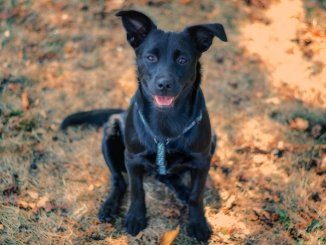

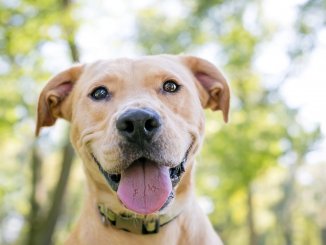
We have a 3 yr old female boxer/pit mix. She’s the very best companion I’ve ever had!! It didn’t take her long to train us either! Lol I heard her telling her friends that we are very smart & trained easily! Lolol. Her name is Samantha; she’s a gorgeous fawn girl.❤🐾❤🐾❤🐾
We have a 6 year old boxer/pit mix. His name is Han Solo, because the kids say he has a brown vest/jacket and a white shirt on Like Han Solo from Star Wars. We have 2 sons one is 15 and the other 4. Solo is very protective and a bit pet aggressive. We wont let other dogs come near. We have a routine where we play catch 2 times a day and he will bring us his ball and give a yap when he is ready. We will get another Boxer/Pit mix because they have been the best for our family.
I have a bullboxer mix. Her name is Sadie. We’ve had her for several years. When she was younger, she would chew up things when we were gone. We got her toys, but she had no interest in them. Now, she’s fat and lazy. I’m not complaining or anything. We have enough hyperness with our brindle pitbull and our (maybe)Rottweiler mix, but I’m still a little concerned about it!
I had a stafy pitmix that died 13 years. I adopted a boxer pitmix (8 yrs old). He has white blue eyes, a little brown mark over eye. Healthy except skin issues.
We just adopted a 6 month pitbull/boxer mix from our local shelter. His name is Oliver and he’s the biggest baby and loves to snuggle on the couch, sit on our laps throughout the day or and run and play. He loves to meet new people and other animals and is very energetic. He’s a little hard to train though.
We have a 5 year old blue nose rescue (she was a bait dog) and 2 days ago we “adopted” a 1 ½ year old boxer pit. He was found on a very busy street chasing empty food bags/containers. My pit (Chloe) was very anxious and becoming depressed (excessively so since I tore a ligament and pandemic hit)and we were so lucky that her new little brother joined us.She is 64# and he’s about 45#. They play all day (we have a doggie door and a huge back yard) and he takes his cues from her. He also does this hop/jump thing over her when he’s worn her out, which is hysterical and she likes to grab his harness on his chest and pull him. He’s curious about our cats but seems to sense that the 3# kitty is the alpha, lol. We haven’t named him yet, but he will have a meaningful name. Eventually. He is the sweetest dog (so is our other one).Neither gets food aggressive and my pit loves my grandkids, 10months to 8 years old(we can ALL can take food out of her mouth) , and I’m sure Nameless will love any baby, kid,too. He does like to take my shoes, 1 blanket, and the remote, though he doesn’t chew any of it. I’m so excited these 2 have each other (in addition to making our family bigger). They have been incredible companions, especially as I have lost 3 people within next week. They have been wonderful companions.